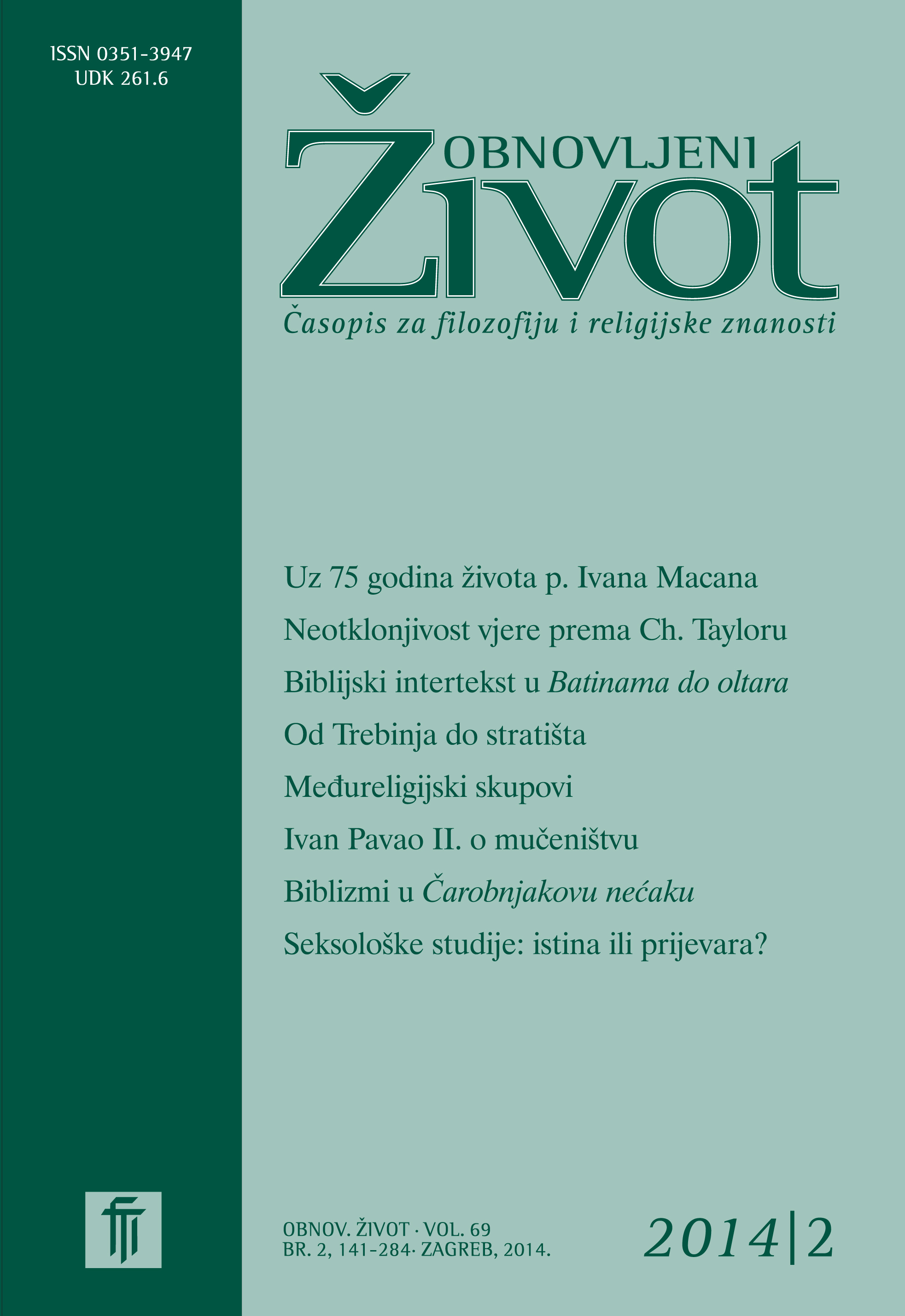The Unrejectability of Faith According to Charles Taylor
Keywords:
Charles Taylor, secularization, religion, selfhood, uncertainty of (un) belief, God’s pedagogyAbstract
The article presents the thesis of philosopher Charles Taylor on the unrejectability of faith in the secular age, beginning with a definition of secularization taken from his major work. The definition involves a social perception of faith as an option which is no longer to be taken for granted. Then, in following the process of development of the understanding of one’s self, the author points out processes and prevailing attitudes that paved the way for secularization: the medieval reformation of faith, the disenchantment of the world, deism, the anthropological turnabout and exclusive humanism. These processes have created for selfhood a state of non–porousness in relation to that which is external to it. However, the buffered self, under cross– pressure between belief and unbelief, continues to demonstrate its openness to the transcendent. For this reason the principles of Taylor’s positive hermeneutics of secularization and his reasons for hope in the insuperability of faith are still singled out. A superficial understanding of and hostile attitude toward secularization increase fear and pessimism as regards the future of religion. However, when grasped in a more profound manner, secularization is not and cannot be the end of religion. When viewed on the level of God’s pedagogy and the religious development of human selfhood, secularization proves to be a providential stage and a new opportunity for religious faith.
Downloads
Published
Issue
Section
License
Jednom prihvaćeni članak obvezuje autora da ga ne smije objaviti drugdje bez dozvole uredništva, a i tada samo uz bilješku da je objavljen prvi put u Obnovljenom životu. Uredništvo će obavijestiti autora o prihvaćanju ili neprihvaćanju članka za objavljivanje.
Članci objavljeni u časopisu se, uz prikladno navođenje izvora, smiju besplatno koristiti u obrazovne i druge nekomercijalne svrhe.


